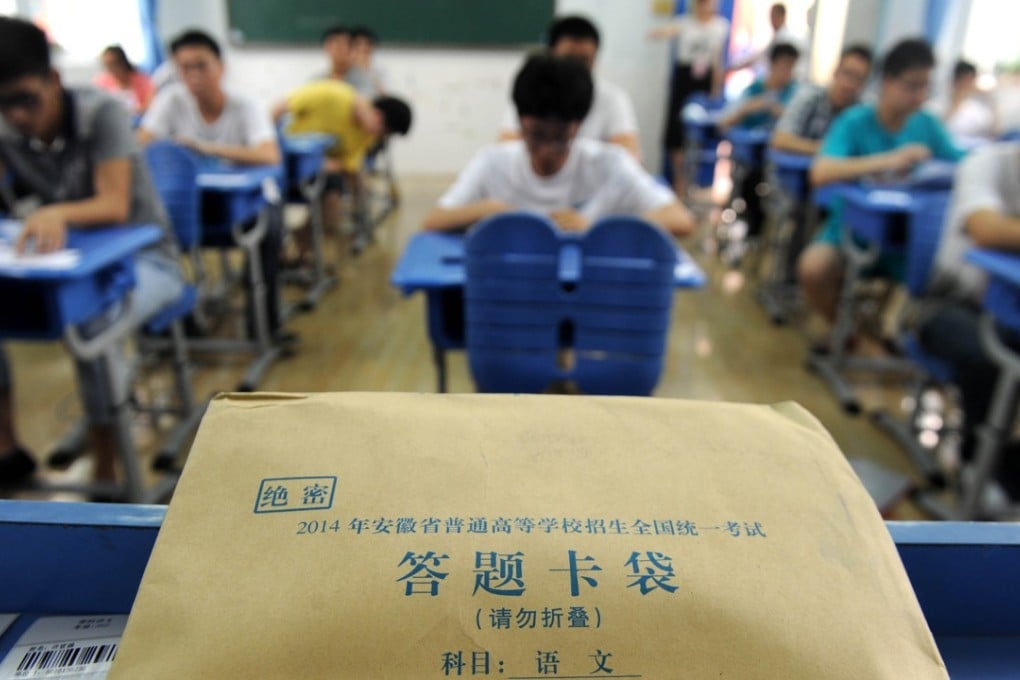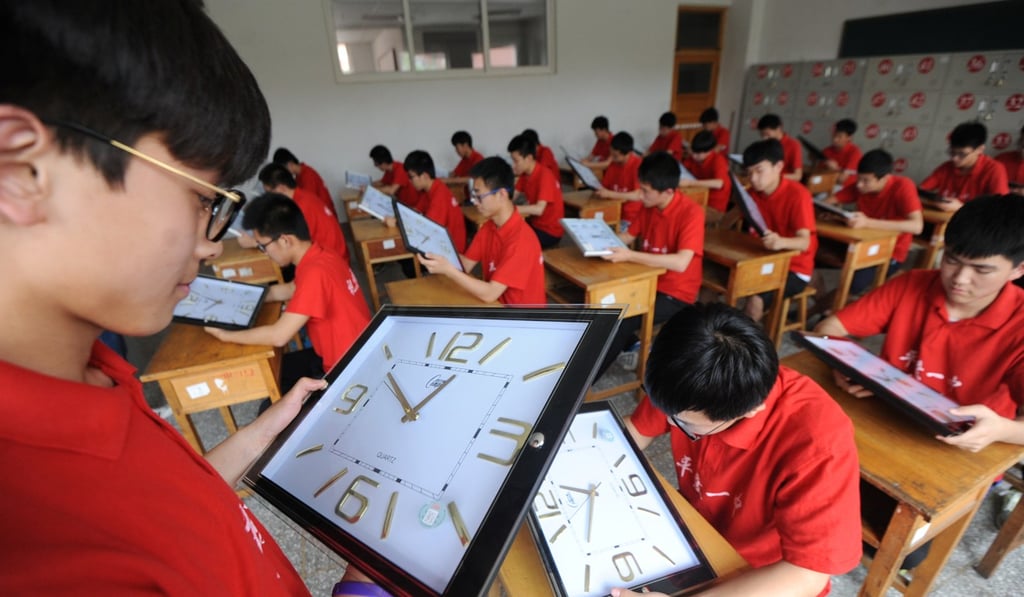Exclusive | Robot tutors set to help students take on China’s daunting Gaokao college entrance exams
Artificial intelligence-driven tutors performed better than human teachers when it came to improving test scores

In China, where many parents still believe that going to a good university is a sure bet for a successful life, little expense or effort is spared to prepare their children for the annual university entrance examinations.
Known as Gaokao in Chinese, the exams take place over a few days and tests each June, quizzing students on subjects that include Chinese, mathematics, the sciences, and a foreign language. The combined score, similar to the Grade Point Average (GPA) in the US, is then used to rank and corral students into different universities. Top institutes like Tsinghua and Peking University, like Harvard and Yale, get the ones with the highest GPA-equivalent scores.
But what if students could get the help of robot teachers to help them prepare for the examinations? Machine tutors that know the students “much better than they understand themselves” – in the words of Yixue Education co-founder Li Haoyang.
In a competition between Yixue Education’s artificial intelligence-backed software and teachers with an average teaching experience of 17 years, the machines were able to improve test scores more than their human counterparts. The contest, which involved 78 students, took place in October in Zhengzhou, Henan province, under the supervision of the local education bureau and was monitored by internet analysis firm iResearch.
China wants to bring artificial intelligence to its classrooms to boost its education system
“Traditional teaching in the classroom is very low in efficiency as the weaknesses of each student varies,” Li, who declined to give his age but should be in his late 30s, said in an interview in Guangzhou. “Many students waste time learning knowledge that they have mastered repeatedly, as the teachers want to take care of those who have yet to know it well. But even then, slower learners could still be left behind as teachers might not be able to spend enough time to help them.”

Yixue is competing with other start-ups like Hujiang EdTech for a slice of an expanding pie in China’s online education industry, which iResearch projects will increase more than 70 per cent from last year to 269.26 billion yuan (US$41 billion) in revenue in 2019. Other educational start-ups in China include Liulishuo, which uses AI-powered software to teach users English.
After four days of intensive training, students using Yixue’s software saw their average mathematics test scores increase 36.13 points, compared with 26.18 points for students tutored by the human teachers, according to the company.